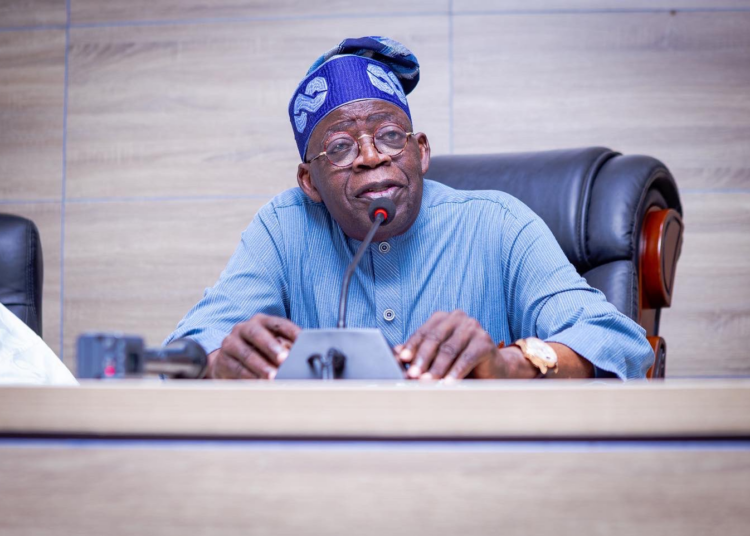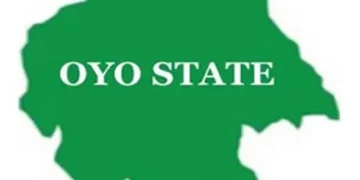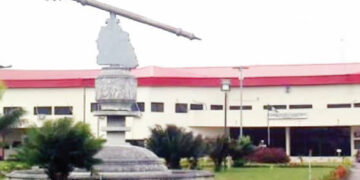The Tinubu administration will, in the coming weeks, unveil an initiative that will address insurgency and poverty, among other challenges confronting Nigerians, especially those living in the northern region, Vice President Kashim Shettima has said.
The vice president, who disclosed this yesterday in chat with journalists while on a condolence visit to Kano State, stated that the president’s initiative is a non-military approach.
According to a statement by his media office, Sen Shettima, accompanied by Deputy Senate President Barau Jibrin, among others, were in Kano to commiserate with the government and people of Kano over the passing away of elder statesman, Alhaji Abubakar Imam Galadanci.
Speaking on the plan to address challenges confronting Nigerians, he said, “The president is determined to define the meaning and concept of modern governance. The crisis we have in the North West is further accentuated by poverty. Social exclusion is also something that the president is determined to confront and, in the coming weeks, he is going to unveil the Pulaku solution.”
LEADERSHIP reports that Pulaku is the Fulani code of conduct defining and symbolising Fulbe identity and way of life, and bonding their relationship with one another.
Shettima continued, “Unless we want to engage in an endless war of attrition, there cannot be a military solution to the crisis in the North West. There has to be a kinetic and non-kinetic solution.
“In the next couple of weeks, we will unveil the Pulaku solution which will address the grievances and social exclusion of our Fulbe cousins in the North West and also towards addressing the root causes of all the banditry and insurgency in the nation.”
Earlier on arrival in Kano, the vice president received by Governor Abba Yusuf and he proceeded to the residence of the Emir of Bichi, HRH Alhaji Nasiru Ado Bayero, where he commiserated with him on the passing away of the late Imam Galadanci, and expressed President Tinubu’s condolences.
From the Emir of Bichi’s residence, the Shettima proceeded to the family compound of the late Galadanci where he was received by Prof. Shehu Galadanci and Air Vice Marshal Nura Imam (retd.) on behalf of the extended family.
Thanking the vice president for the visit on behalf of the family, Prof Shehu Galadanci emphasised the need for unity of purpose among northern leaders and urged Nigerians to always support the Tinubu administration in prayers and otherwise, for the success of its programmes and policies.
From Kano, the vice president then flew to Katsina on another visit to condole with renowned businessman, Alhaji Dahiru Mangal, over the demise of first wife, Hajiya Aisha Dahiru, who died Saturday evening in Abuja after a brief illness.
Hajiya Mangal has been buried according to Islamic rites.
Also yesterday, President Tinubu in Nairobi, Kenya, reaffirmed Africa’s unity and strength, while strongly rejecting the notion of a new scramble for Africa.
The president warned that the past plundering and exploitation of the continent should remain in the past and not repeated.
Speaking at the Fifth Mid-Year Coordination Meeting of the African Union (AU), the Regional Economic Communities (RECs), the Regional Mechanisms (RMs), and the African Union Member-States, the president in a statement by presidential spokesman, Dele Alake, announced plans to strengthen the ECOWAS Standby Force to deter coups and combat terrorism in the sub-region.
The Nigerian leader, in his capacity as the chairperson of the ECOWAS Authority of Heads of State and Government, highlighted the progress made by ECOWAS in various sectors of its integration process, including trade, free movement of persons, investment promotion, infrastructure development, and security.
In his statement entitled “Address on Status of Regional Integration in ECOWAS,” he emphasized the need for Africa to overcome its challenges and work towards a prosperous future, focusing on inclusive growth, good governance, and leveraging the opportunities provided by the African Continental Free Trade Area (AfCFTA).
Calling for good governance to ensure a prosperous future for Africa, free from the exploitations of the past, President Tinubu said: “As Africans, we forge ahead no matter the barriers thrust before us
“The world we inhabit is often unkind and uncertain. Past history and current global difficulties argue against our future success.
”Lessons of the past few years teach us that the world economy can be disrupted in ways that halt progress and invite downturn. Our nations can suddenly find themselves in dire situations if we choose to be passive observers of our fate.
”Such passivity does not commend itself to me. I will not listen to it. Neither should any African. The challenges we face mean that governance will be difficult.
”They also mean that visionary good governance is necessary. Some observers assert a new scramble for Africa is afoot and it is much like the old scramble that plundered our continent.
”But, here and now, let it be said to whomever the new scramblers might be that our continent may be old but our spirit is new. And it is strong. The bad that took place in the past must stay there. It shall never be repeated.”
On peace, security, and stability, Tinubu acknowledged the challenges faced by the sub-region, including terrorism and unconstitutional changes in government.
”We sit here in a meaningful discussion of vital economic matters. Yet, it will be impossible to bring full meaning to what we attempt unless we give due consideration to the instability and conflict that now scar many of our nations.
”The fullness of the integration we seek will elude us as long as several of our nations stand in the midst of violence and war.
”We cannot integrate Africa and attain the prosperity we seek while our nearby brothers and sisters suffer in pain and anguish, they should not suffer. We must advance as one continent toward peace and prosperity.
”Otherwise, we risk the creation of two or more Africa, one a select group of nations moving steadily while the rest remain trapped in the age-old mire of poverty, conflict and lack of hope.”
He pointed out that in the area of peace, security, and stability, region is confronted with the twin challenges of terrorism and reversal of democratic gains through undemocratic changes of Government.
”To address these challenges, the ECOWAS Authority, which I have the honour to chair, has given a directive regarding the enhancement of the role of the ECOWAS Standby Force for deployment to fight terrorism and undemocratic changes in government.
President Tinubu recounted that during the recently concluded ECOWAS Summit in Bissau, West African leaders resolved to maintain engagement with Mali, Burkina Faso, to assiduously work towards the implementation of the 24-month transition calendars agreed with ECOWAS.
Nonetheless, to assist Burkina Faso and Mali in defending their territories from occupation by terrorists, he said, ECOWAS had decided to provide support for their security agencies.
He appealed to international partners to assist to provide necessary support that will ensure the restoration of democratic order in these member-states.
On trade, President Tinubu said ECOWAS had achieved the Free Trade Area and was working on establishing the Customs Union and Common Market.
However, he expressed concern about the low level of intra-community trade among member-states, noting that the European Union remains the major trading partner for the region, followed by Asia, North America, and the rest of Africa.
Highlighting efforts made by ECOWAS to consolidate the gains of its trade liberalization scheme and support the implementation of the AfCFTA, the Nigerian leader said the ECOWAS Commission had been assisting member-states in the negotiations, ratification, and implementation of the AfCFTA.
He noted that 13 out of the 15 ECOWAS member states had ratified the agreement.
On free movement of persons, President Tinubu informed the meeting that ECOWAS had commenced action towards the implementation of the Harmonized Visa-Regime (ECOVISA) to facilitate the free movement of non-ECOWAS citizens.
On regional infrastructure development, President Tinubu reaffirmed ECOWAS’ focus on building regional infrastructure, including the Lagos-Abidjan Corridor Highway, to promote economic activities and integration.
Regarding intra-regional cooperation, the President informed the meeting that a joint border post between Nigeria and Cameroon was recently commissioned and handed over in November 2022 to the authorities of the two countries.
He described the project as a bridge between ECOWAS and ECCAS and a solid foundation for future cooperation and integration between the regions and ultimately the African continent
President Tinubu also provided an update on the energy sector, expressing delight that several generation and inter-connection projects had been implemented within the region.
According to him, with the completion of the electric interconnection between Cote d’Ivoire-Liberia-Sierra Leone- Guinee (1,300 km) and between Senegal-The Gambia-Guinea Bissau and Guinea (1,700 km), all the 15 countries in West Africa have now been interconnected.
”The completion of the Information and Coordination Centre of the West African Power Pool (WAPP) will enable member-states to buy and sell electricity in the region as this centre will act as a regional system operator within the framework of the regional electricity market,” he said.
The ECOWAS chairperson also provided updates on investment promotion, the ECOWAS Cybersecurity Agenda to combat cybercrime and improve cybersecurity capabilities in member states.
As the chairperson of the ECOWAS Authority of Heads of State and Government, President Tinubu expressed his honour to participate, for the first time, in the Mid-Year Meeting of AU.




